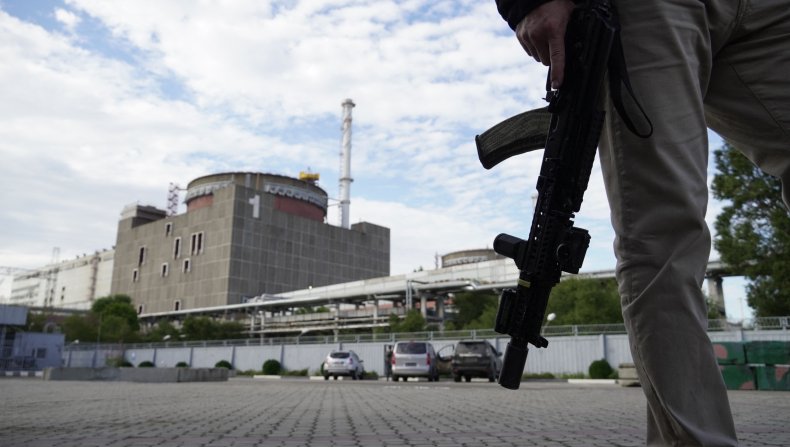Russian forces occupying Ukraine's Zaporizhzhia nuclear plant (ZNPP) have ordered one of the facility's six reactors into a "hot shutdown" state, a move that violates safety protocols, Ukrainian nuclear operator Energoatom has said.
"Such actions are a gross violation of the requirements of the license to operate this nuclear facility," Energoatom said in a statement on Monday. "Currently, [reactor] No. 4 of the ZNPP must be operated exclusively in a 'cold stop' state."
Ukraine and Russia have repeatedly accused each other of planning a "provocation" at ZNPP, Europe's largest nuclear power plant. The plant has been under Russian control since March 2022, soon after Russian President Vladimir Putin's full-scale invasion of Ukraine began.
There have been widespread concerns about a potential nuclear catastrophe at the plant and both Ukraine and Russia have accused each other's forces of shelling the facility.

Five of the plant's six reactors have been completely shut down since September 2022 but reactor number five had been kept in a hot state, which helped to supply energy within the ZNPP. It was switched to a cold shutdown state—where it no longer generates electricity—on June 8.
According to online newspaper the Kyiv Independent, transferring reactor number four into hot shutdown heightens safety risks and Petro Kotin, the president of Energoatom, said the decision is "criminal."
"This is a deliberate and intentional violation of Ukrainian and international law," Kotin said in a statement.
"The occupiers continue to commit criminal acts. They once again violate the requirements of the operating license issued by the State Atomic Energy Regulatory Authority of Ukraine (DIARU) to put all units of the plant into cold shutdown, as well as the requirements of the [the International Atomic Energy Agency] IAEA," he said.
The Moscow-installed administration of the plant, however, has said transferring one of the reactors to hot shutdown mode means steam can be produced as part of measures to ensure nuclear safety, Reuters reported.
"In order to conduct a scheduled technical inspection of the equipment of power unit No. 5, the management of the Zaporizhzhia nuclear power plant decided to transfer it to the 'cold shutdown,' state," it said in a statement.
"And in order to provide steam for the station's own needs, the reactor plant of power unit No. 4 was transferred to the 'hot shutdown' state," it added.
The IAEA has said the other units remain in cold shutdown.
IAEA Director General Rafael Mariano Grossi said Tuesday that the agency's experts spotted anti-personnel mines on the grounds of the ZNPP during an inspection on July 23.
"The presence of explosives at the site is contrary to IAEA safety standards and nuclear safety instructions and creates additional psychological pressure on station personnel—even if the IAEA's initial assessment, based on its own observations, is that any detonation of these mines should not affect the nuclear and radiation safety systems," said Grossi.
Newsweek has reached out to Energoatom and Russia's Foreign Ministry for comment via email.








